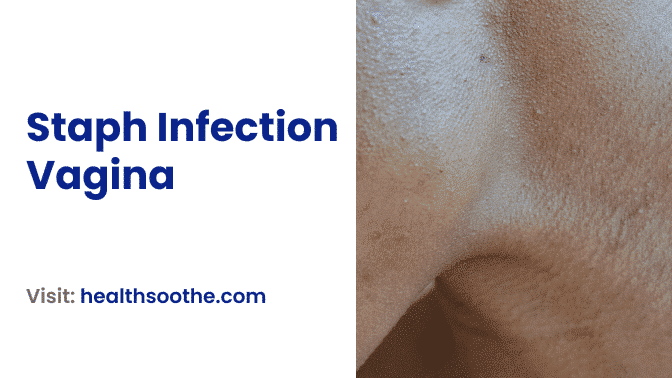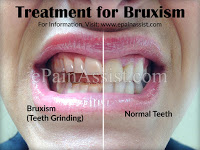A bright and healthy smile is a reflection of good oral health. However, if you've noticed the presence of black dots on your teeth, it can be concerning and may affect your self-confidence.
In this blog post, we will delve into the causes, diagnosis, treatment options, and prevention strategies for teeth black dots.
Causes of Teeth Black Dots:
- Dental caries (tooth decay): The most common cause of black dots on teeth is tooth decay. Bacteria in the mouth produce acids that erode the tooth enamel, leading to cavities. These cavities can appear as black dots on the teeth.
- Poor oral hygiene: Inadequate brushing and flossing habits can result in the accumulation of plaque and tartar on the teeth, which can contribute to the formation of black dots.
- Smoking or tobacco use: Tobacco products contain chemicals that can stain the teeth, resulting in black or dark spots.
- Staining from food and beverages: Consuming certain foods and beverages like coffee, tea, red wine, and dark-coloured berries can cause surface stains on the teeth, which may appear as black dots.
- Medications: Some medications, such as iron supplements or certain antibiotics, can cause teeth discolouration, including the development of black dots.
- Dental restorations: Old or deteriorating dental fillings, crowns, or other dental restorations may develop black spots over time.
Diagnosis of Teeth Black Dots:
If you notice black dots on your teeth, it's essential to visit a dentist for a proper diagnosis. The following methods may be used:
- Dental examination: The dentist will visually inspect your teeth, looking for any signs of decay or discolouration.
- Dental X-rays: X-rays can help identify cavities or underlying issues that may not be visible during a regular dental examination.
- Medical history review: Discussing your medical history, oral hygiene routine, and lifestyle habits can provide valuable insights into the potential causes of teeth black dots.
Read Also: Top Secrets for Healthy Gums and Teeth Unveiled
Treatment Options for Teeth Black Dots:
The treatment approach will depend on the underlying cause and severity of the black dots. Here are some common treatment options:
- Dental cleaning and polishing: Professional dental cleaning can remove surface stains and tartar buildup, improving the appearance of your teeth.
- Dental fillings or restorations: If the black dots are due to dental caries, the decayed areas will need to be cleaned and filled with tooth-coloured fillings.
- Teeth whitening procedures: Teeth whitening treatments can help lighten the overall shade of your teeth, reducing the appearance of black dots caused by stains.
- Dental veneers or crowns: In cases where the black dots are extensive or resistant to other treatments, dental veneers or crowns can be used to cover and conceal the affected teeth.
- Orthodontic treatment: In some instances, black dots may be a result of poor alignment or spacing issues. Orthodontic treatment, such as braces or clear aligners, can help correct these issues and improve the overall appearance of your smile.
Prevention of Teeth Black Dots:
Prevention is always better than cure. Here are some preventive measures you can take to maintain a healthy and spot-free smile:
- Regular brushing and flossing: Brush your teeth at least twice a day with fluoride toothpaste and floss daily to remove plaque and prevent decay.
- Avoiding tobacco use: Quit smoking and avoid all forms of tobacco to prevent teeth staining and other oral health problems.
- Limit consumption of staining foods and drinks: Reduce your intake of foods and beverages that are known to stain teeth, such as coffee, tea, red wine, and acidic fruits.
- Regular dental check-ups: Visit your dentist for regular check-ups and professional cleanings to catch any potential issues early on and maintain good oral health.
- Professional dental cleanings: Schedule professional dental cleanings every six months to remove stubborn stains and tartar buildup that may contribute to black dots.
Home Remedies for Teeth Black Dots:
While home remedies may not completely eliminate black dots, they can assist in reducing their appearance. However, it's essential to consult with your dentist before attempting any home remedies. Here are a few options to consider:
- Oil pulling: Swishing coconut oil or sesame oil in your mouth for 15-20 minutes can help remove surface stains.
- Baking soda and hydrogen peroxide paste: Mixing a small amount of baking soda with hydrogen peroxide to create a paste and gently brushing your teeth with it can help lighten stains.
- Activated charcoal: Brushing your teeth with activated charcoal powder can help absorb surface stains. However, use this method sparingly as excessive use may damage tooth enamel.
- Apple cider vinegar rinse: Dilute apple cider vinegar with water and use it as a mouthwash. Be cautious with this method as vinegar is acidic and may erode tooth enamel if used excessively.
When to Seek Professional Help
If you notice persistent black dots on your teeth or experience any discomfort or pain, it's crucial to seek professional dental help. A dentist can determine the underlying cause and recommend the appropriate treatment options.
Conclusion
Teeth black dots can be a source of concern and impact your smile's aesthetics. By understanding the causes, seeking an early diagnosis, and following proper oral hygiene practices, you can effectively prevent and treat this dental issue. Remember to visit your dentist regularly for check-ups and professional cleanings to maintain a healthy, white, and confident smile.
FAQ 1: Q: What are the black dots on my teeth?
A: The black dots on your teeth could be dental stains or cavities. They may be caused by factors such as poor oral hygiene, consuming staining substances like coffee or tobacco, or tooth decay.
FAQ 2: Q: Can black dots on teeth be removed?
A: Yes, black dots on teeth can be removed through various dental procedures depending on the underlying cause. Teeth cleaning, professional whitening, or dental fillings are some of the treatments that can help eliminate or conceal the black dots.
FAQ 3: Q: Do all black dots on teeth indicate cavities?
A: Not all black dots on teeth indicate cavities. While some black dots may indeed be cavities, others may be superficial stains or discolorations. It is essential to consult a dentist to determine the cause and appropriate treatment.
FAQ 4: Q: How can I prevent black dots from forming on my teeth?
A: To prevent black dots from forming on your teeth, maintain good oral hygiene practices such as brushing twice a day, flossing daily, and visiting your dentist regularly for check-ups and cleanings. Avoiding or minimizing consumption of staining substances like coffee, tea, and tobacco can also help prevent stains.
FAQ 5: Q: Are there any home remedies for removing black dots on teeth?
A: While home remedies may not effectively remove black dots on teeth, maintaining good oral hygiene practices can help prevent them. Additionally, using whitening toothpaste or whitening strips approved by dental professionals may help reduce superficial stains. However, it's best to consult a dentist for proper evaluation and treatment.



